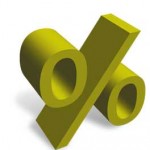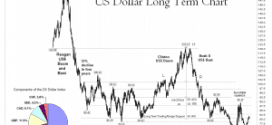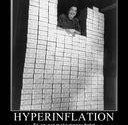What does it look like when a 30 year bull market ends abruptly? What happens when bond yields start doing things that they haven’t done in 50 years? If your answer to those questions involves the word “slaughter”, you are probably on the right track. Right now, bonds are being absolutely slaughtered, and this is only just the beginning. So why should the average American care about this?
when bond yields start doing things that they haven’t done in 50 years? If your answer to those questions involves the word “slaughter”, you are probably on the right track. Right now, bonds are being absolutely slaughtered, and this is only just the beginning. So why should the average American care about this?
So writes Michael Snyder (http://theeconomiccollapseblog.com) in edited excerpts from his original article* entitled The Trigger Has Been Pulled And The Slaughter Of The Bonds Has Begun.
[The following article is presented by Lorimer Wilson, editor of www.FinancialArticleSummariesToday.com and www.munKNEE.com and may have been edited ([ ]), abridged (…) and/or reformatted (some sub-titles and bold/italics emphases) for the sake of clarity and brevity to ensure a fast and easy read. This paragraph must be included in any article re-posting to avoid copyright infringement.]
Snyder goes on to say in further edited excerpts:
Over the last several years, reckless bond buying by the Federal Reserve has forced yields down to absolutely ridiculous levels…and lots of bond investors made a lot of money riding the bubble that Bernanke created. Now that Bernanke has indicated that the bond buying will be coming to an end, however, investors are going into panic mode and the bond bubble is starting to burst…[Indeed,] if the Fed does not intervene and allows the bubble that it has created to burst, we are going to see unprecedented carnage…
Junk Bonds
A bond sell-off has been anticipated for years, given the long run of popularity that corporate and government bonds have enjoyed but most strategists expected that investors would slowly transfer out of bonds, allowing interest rates to slowly drift up. Instead, since the Federal Reserve chairman, Ben S. Bernanke, recently suggested that the strength of the economic recovery might allow the Fed to slow down its bond-buying program, waves of selling have convulsed the markets. In particular, junk bonds are getting absolutely hammered. Money is flowing out of high risk corporate debt at an astounding pace…
The performance of US dollar denominated below investment grade rated corporate debt publically issued in the US domestic market, [that is,] the measure of the yield on junk bonds…sank to ridiculous lows in May, but since then it has been absolutely skyrocketing..
If the era of “cheap money” is over and businesses have to pay more to borrow, that is going to cause economic activity to slow down. There won’t be as many jobs, part-time workers will get less hours, and raises will become more infrequent. Those are just some of the reasons why you should care about this stuff.
Municipal Bonds
Municipal bonds are being absolutely crushed right now too. You see, when yields on U.S. government debt rise, they also rise on state and local government debt….
If borrowing costs for state and local governments rise, they won’t be able to spend as much money, they won’t be able to hire as many workers, they will need to find more revenue (tax increases), and more of them will go bankrupt.
What we are witnessing right now is just the beginning. Things are going to get MUCH worse. The following is what Robert Wenzel recently had to say about the municipal bond market… “There is only one direction for rates: UP, with muni bonds leading the decline, given that the financial structures of many municipalities are teetering. There is absolutely no good reason to be in municipal bonds now. And muni ETFs will be a worse place to be, given this is relatively HOT money that will try to get out of the exit door all at once.
Interest Rate Derivatives
As I wrote about yesterday, [Rapidly Rising Interest Rates Could Lead to Financial Collapse – Here’s Why] the worst part of the slaughter is going to be when the 441 trillion dollar interest rate derivatives time bomb starts exploding. If bond yields continue to soar, eventually it will take down some very large financial institutions. The following is from a recent article by Bill Holter [in which he said] “Please understand how many of these interest rate derivatives work. When the rates go against you, “margin” must be posted. By “margin” I mean collateral. Collateral must be shifted from the losing institution to the one on the winning side. When the loser “runs out” of collateral, that is when you get a situation similar to MF Global or Lehman Bros., they are forced to shut down and the vultures then come in and pick the bones clean – normally. Now it is no longer “normal,” now a Lehman Bros will take the whole tent down.”
Most people have no idea how vulnerable our financial system is. It is a house of cards of risk, debt and leverage. Wall Street has become the largest casino in the history of the planet, and the wheels could come off literally at any time…
The End of Bond Buying
The central banks of the world could attempt to “kick the can down the road” by buying up lots and lots of bonds, but it does not appear that is going to happen…The Bank for International Settlements, the central bank of central banks, consists of 58 global central banks…[and in its most recent] annual report…[reported] that central banks “cannot do more without compounding the risks they have already created”, and that central banks should “encourage needed adjustments” in the financial markets.
In other words, the BIS is saying that it is time to end the bond buying… so expect central banks to start scaling back their intervention in the marketplace. This is probably going to cause interest rates to rise dramatically and cause all sorts of chaos as the bubble that they created implodes. It could even potentially cause a worse financial crisis than we saw back in 2008.
[Editor’s Note: The author’s views and conclusions in the above article are unaltered and no personal comments have been included to maintain the integrity of the original post. Furthermore, the views, conclusions and any recommendations offered in this article are not to be construed as an endorsement of such by the editor.]
*http://theeconomiccollapseblog.com/archives/the-trigger-has-been-pulled-and-the-slaughter-of-the-bonds-has-begun
Related Articles:
1. Rapidly Rising Interest Rates Could Lead to Financial Collapse – Here’s Why
The global financial system is potentially heading for massive amounts of trouble if interest rates continue to soar. So what does all this mean exactly? [Let me explain.] Read More »
2. Rising Interest Rates Could Plunge Financial System Into a Crisis Worse Than 2008 – Here’s Why
If yields on U.S. Treasury bonds keep rising, things are going to get very messy. What we are ultimately looking at is a sell-off very similar to 2008, only this time we will have to deal with rising interest rates at the same time. The conditions for a “perfect storm” are rapidly developing, and if something is not done we could eventually have a credit crunch unlike anything that we have ever seen before in modern times. Let me explain. Read More »
3. We Think Interest Rates are Making a Long-term Turn Upwards
We had previously speculated that the 30-year bond rate would continue downward to around 2% based upon a number of very long-term charts. Short-term charts, however, are showing strong technical evidence that interest rates may be turning up in the long term. Words: 267; Charts: 2 Read More »
4. What Will Cause Interest Rates to Rise? Will That Be Good or Bad?
Don’t get too worked up over interest on the national debt or what will happen when interest rates rise because, by then, we’ll likely be talking about ways to cool down the economy. [Why?] Because interest rates on US government debt are really a function of economic growth. If the economy is weak the Fed will pin short rates to stimulate the economy and if rates rise it’s going to be a function of better days ahead. Words: 525
5. A Rise in Interest Rates Would Derail An Economic Recovery – Yes or No?
[While]… I am not currently predicting an acceleration in inflation [I believe]…that the risk of interest rate instability is very real [given that] core inflation is already above a key benchmark that the Fed has staked its credibility on,. It should be of concern to investors that, despite economic growth being so anemic and overall resource utilization being so low (including human resources), there is currently very little margin for error on the inflation front. [In this article the author evaluates the danger that rising interest rates could potentially have on the U.S. economy.] Words: 20506. Soros Sees Interest Rates Soaring Soon – What Does That Mean for Bonds & Gold?
The U.S. economy is picking up steam and the Fed’s quantitative-easing approach is helping and as a result investors should watch out for a possible spike in interest rates once growth is well under way (later this year) warns billionaire financier George Soros. It has been suggested that this would adversely affect bonds but not everyone agrees. Read on!
At some point we are going to see another wave of panic hit the financial markets like we saw back in 2008. The false stock market bubble will burst, major banks will fail and the financial system will implode. It could unfold something like this: Words: 660 Read More »
8. U.S. Financial System Will Die When Interest Rates Rise! Here’s Why
 munKNEE.com Your Key to Making Money
munKNEE.com Your Key to Making Money


Very interesting read. Call me dumb, but am wondering why the big banks haven’t reduced their derivatives exposure post-recession, despite the deleveraging wave. I read somewhere that the sophisticated derivatives models that traders use will be no good to combat the rapidly rising interest rates. While am not sure what the reason is, I’m wondering what kind of collateral will the big banks be able to post as “margin”. Now wonder why the Glass Steagall act is so relevant to the situation!